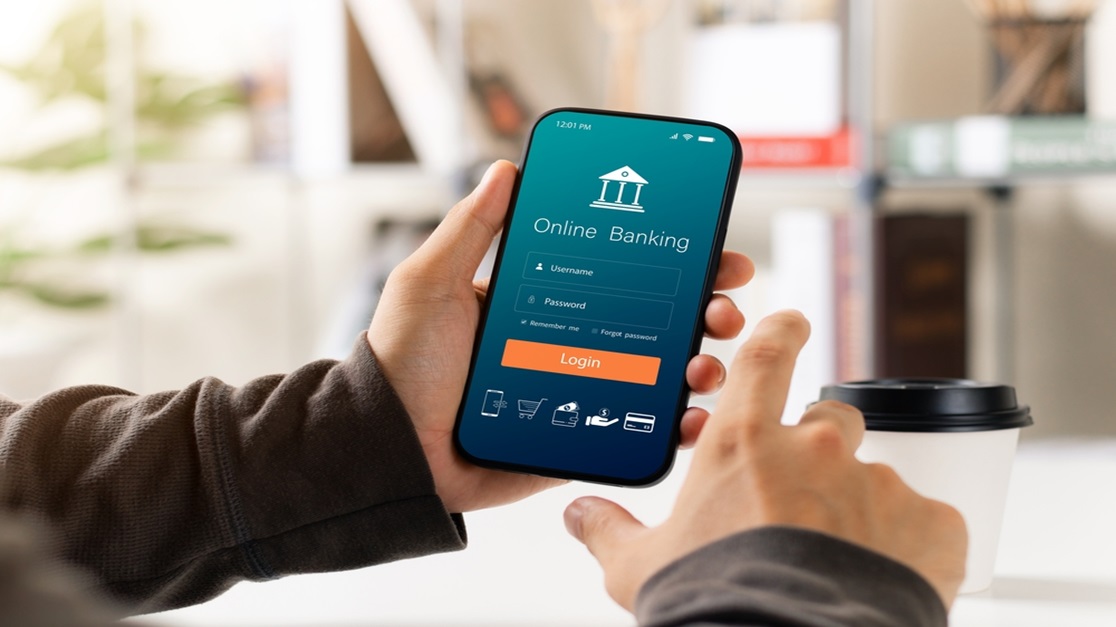7 Steps You Should Consider to Ensure Online Banking Security
January 31, 2025

Navigating the world of online banking can sometimes feel like walking through a maze blindfolded, especially with the increasing incidents of financial frauds. Secure online banking isn't just nice-to-have, it’s a must in today's digital age. This guide will equip you with the knowledge to safeguard your financial data from potential threats. We'll delve into practical strategies to enhance your online banking security, ways to avoid scams, and how to recognise secure banking platforms.
Key strategies to Enhance Your Online Banking Security
1. Use Strong Passwords
- Create Difficult Passwords: To do so, develop a mix of uppercase and lowercase letters, numbers, and special characters. Try to create passwords of at least 8 characters or more in length.
- Change Passwords Regularly: Update your password every three to six months, and immediately inform the bank if you suspect it has been compromised.
- Avoid Common Password Pitfalls: Do not use easily guessable information like birthdays or common words.
2. Enable Multi-Factor Authentication
- Add Extra Security Layers: Use multi-factor authentication whenever available. This often involves receiving a one-time password (OTP) via SMS or email or adding an additional verification step beyond just your password.
3. Secure Your Devices
- Install Antivirus Software: Using licensed antivirus and anti-malware software is a fundamental step in safeguarding your personal and sensitive information.
- Use a Firewall: Ensure your computer's firewall is active to prevent unauthorised access to your network.
4. Be Cautious with Public Wi-Fi
- Avoid Public Networks: Do not access your bank account over unsecured public Wi-Fi networks, as they can be vulnerable to hackers.
5. Verify Website Security
- Check URLs: Always type your bank's URL directly into the browser instead of clicking on links in emails or messages.
- Log Out After Use: Always log out of your banking session and close the browser when finished, especially on shared or public computers.
6. Monitor Your Accounts Regularly
- Check Statements Frequently: Regularly review your bank statements for any unauthorised transactions. Report any discrepancies immediately.
- Set Up SMS Alerts: Enable SME and email alerts to receive notifications of any activity in your account. This can help detect fraudulent transactions quickly, thereby boosting online banking security.
7. Educate Yourself on Phishing Scams
- Be Skeptical of Unsolicited Requests: Your bank will never ask for sensitive information via email or phone. If someone does so, chances are they could be hackers.
- Verify Suspicious Communications: If you receive a suspicious email or call, contact your bank directly using verified contact information to confirm its legitimacy.
Final Thoughts
Securing online banking involves being vigilant and proactive in managing security measures—from recognising phishing scams, securing connections, creating strong passwords, enabling two-factor authentication, and monitoring account activities diligently. By adopting these practices, you can significantly reduce risks associated with online banking frauds.
Enjoy easy banking with Ujjivan Small Finance Bank. Save more with our high-interest Savings Account and Deposit products. Need cash for your business or personal needs? Apply for MSME Loans or Micro Loans with us – we offer competitive rates and quick disbursal. We also offer vehicle loans and home loans tailored for your unique requirements. Experience a smooth banking journey with Ujjivan SFB!
Disclaimer:
The contents herein are only for informational purposes and generic in nature. The content does not amount to an offer, invitation or solicitation of any kind to buy or sell, and are not intended to create any legal rights or obligations. This information is subject to updation, completion, amendment and verification without notice. The contents herein are also subject to other product-specific terms and conditions, as well as any applicable third-party terms and conditions, for which Ujjivan Small Finance Bank assumes no responsibility or liability.
Nothing contained herein is intended to constitute financial, investment, legal, tax, or any other professional advice or opinion. Please obtain professional advice before making investment or any other decisions. Any investment decisions that may be made by the you shall be at your own sole discretion, independent analysis and evaluation of the risks involved. The use of any information set out in this document is entirely at the user’s own risk. Ujjivan Small Finance Bank Limited makes no representation or warranty, express or implied, as to the accuracy and completeness for any information herein. The Bank disclaims any and all liability for any loss or damage (direct, indirect, consequential, or otherwise) incurred by you due to use of or due to investment, product application decisions made by you on the basis of the contents herein. While the information is prepared in good faith from sources deemed reliable (including public sources), the Bank disclaims any liability with respect to accuracy of information or any error or omission or any loss or damage incurred by anyone in reliance on the contents herein, in any manner whatsoever.
To know more about Ujjivan Small Finance Bank Products Visit:"https://www.ujjivansfb.in"
All intellectual property rights, including copyrights, trademarks, and other proprietary rights, pertaining to the content and materials displayed herein, belong
to Ujjivan Small Finance Bank Limited or its licensors. Unauthorised use or misuse of any intellectual property, or other content displayed herein is strictly prohibited and the same is not intended for distribution to, or use by, any person in any jurisdiction where such distribution or use would (by reason of that person’s nationality, residence or otherwise) be contrary to law or registration or would subject Ujjivan Small Finance Bank Limited or its affiliates to any licensing or registration requirements.
FAQs
1. What is two-factor authentication?
Two-factor authentication adds a second layer of security by requiring both a password and a second factor, often a text message code, before access is granted.
2. How often should I change my online banking password?
It's wise to change passwords every three months or immediately after noticing suspicious activity in order to maintain optimal secure online banking practices.
3. Are mobile banking apps safe?
Yes, when downloaded from reliable sources such as the Google Play Store or Apple Store and kept updated, they provide convenient and secure access to financial services.
4. How to avoid scams like phishing?
To avoid scams like phishing open mails and messages only from reputable or known entities. Avoid providing sensitive data like passwords and credit card numbers.
Latest Blogs

Dussehra 2025: How to Win Your Financial Battles with Smart Saving
Dussehra 2025 (also known as Vijayadashami) falls on Thursday, October 2, 2025.

eSIM Scam in India: I4C Warns Mobile Users About Rising Fraud – How to Stay Safe
The Indian Cybercrime Coordination Centre (I4C), a wing of the Ministry of Home Affairs, issued a strong warning to mobile users about the rapid increase in eSIM fraud in India.

How to Link PAN with Aadhaar: Step-by-Step Guide & Consequences of Not Linking
Linking your Permanent Account Number (PAN) with your Aadhaar is no longer just a best practice.

Annual Information Statement (AIS): A Complete Guide for Stress-Free ITR Filing
India’s tax season is in its final stretch.

ITR-1 (Sahaj) Restrictions: Income Sources Not Allowed & Filing Rules
With just a few days left before the 15 September 2025 deadline for filing Income Tax Returns (ITRs) for Assessment Year (AY) 2025-26, many taxpayers are rushing to submit their forms online.





